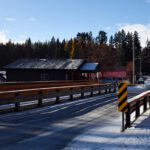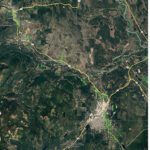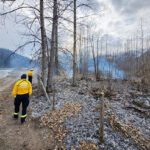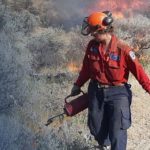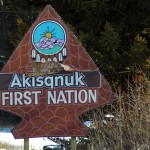Home »

COs urging public to be bear smart
With bears seeking out extra food to build up fat reserves for hibernation, B.C.’s Conservation Officer Service (CO)is busy responding to conflicts between humans and bears.
The main cause of conflicts in B.C. is access to non-natural food sources.
Bears that learn how to get at exposed pet food, ripe fruit, improperly stored garbage, dirty barbecues or composts become conditioned and will continue to return to the food source.
“We can’t prevent all bear-human conflicts but we can prevent those ones,” said Environment Minister Terry Lake. “There’s a lot of information out there for the public such as the Bear Aware website, which offers valuable information to help us all reduce bear-human conflicts.”
The Bear Smart Community program is a voluntary, preventative bear conservation program designed by the Ministry of Environment in partnership with the British Columbia Conservation Foundation and the Union of British Columbia Municipalities. It is based on a set of criteria that must be achieved for communities to be awarded ‘Bear Smart’ status.
The goal of achieving Bear Smart Community status is to address the root causes of bear-human conflicts, reduce the risks to human safety and private property, and reduce the number of bears that have to be euthanized each year. Squamish, Kamloops, Lions Bay and Whistler are the first four B.C. communities to achieve the Bear Smart designation.
Bare bear facts
* Hibernation is an important survival strategy for bears in regions such as British Columbia where their main foods – green vegetation, berries, salmon and insects – are not available in winter.
* Black bears typically hibernate for three to five months on the South Coast and for longer periods (probably five to seven months) in the Interior and the North.
* With only about six months to build up fat reserves for hibernation, black bears must eat a great deal of food. They are particularly attracted to foods that are abundant and high in protein and energy and that they can get with little effort.
Learn More:
* Information on the Bear Smart Communities program:
www.env.gov.bc.ca/wld/bearsmart/bearsmintro.html
* Bear Aware education program: www.bearaware.bc.ca
* Report human-wildlife conflicts to the Report All Poachers and Polluters (RAPP) line toll-free at 1 877 952-7277 (RAPP), or visit the RAPP website at: www.rapp.bc.ca.
